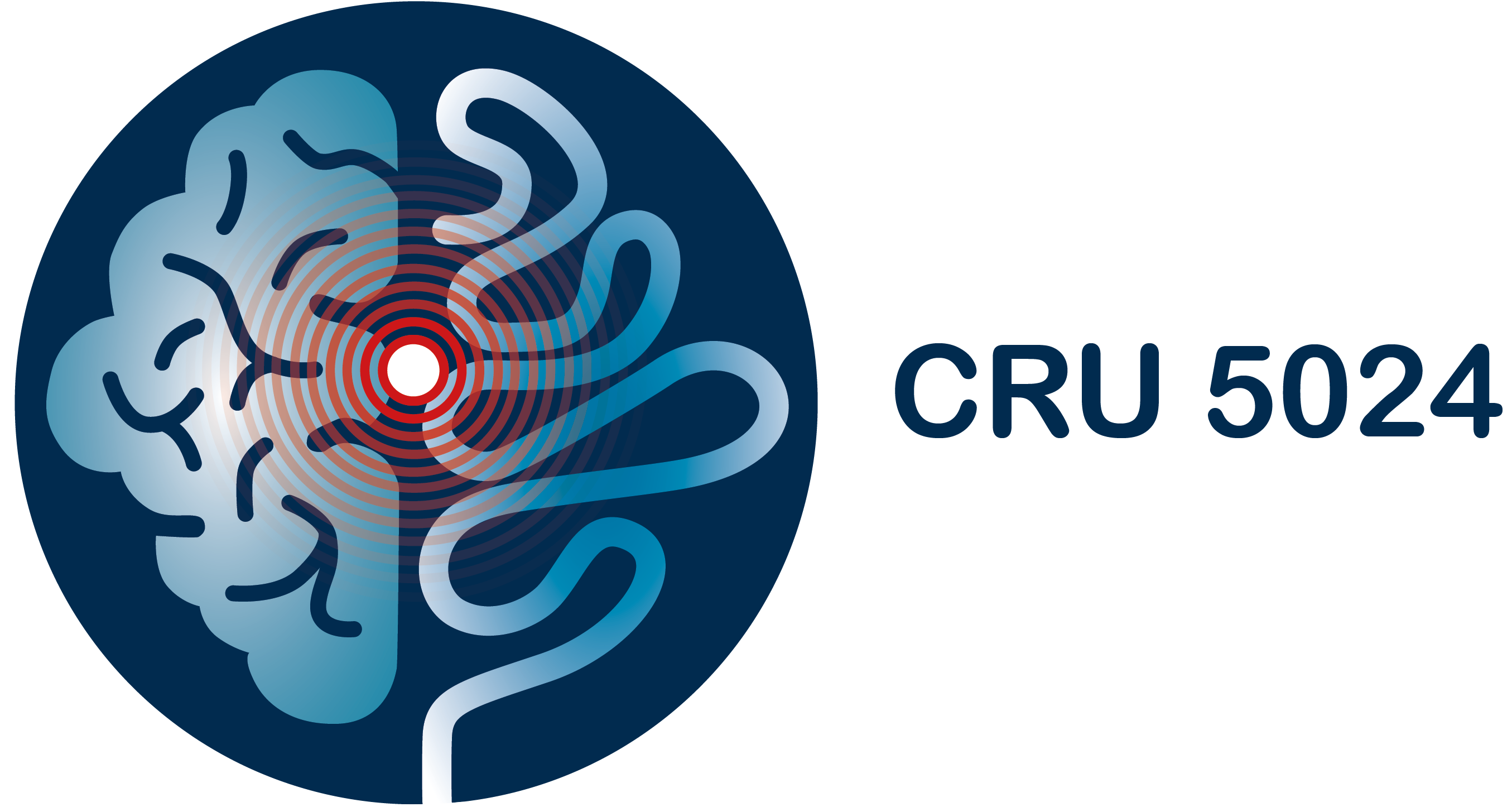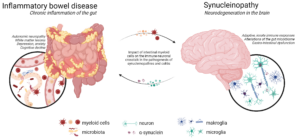Project B03
Impact of intestinal myeloid cells on the immune-neuronal crosstalk in the pathogenesis of synucleinopathies and colitis
Project Description
Inflammatory bowel disease (IBD) and chronic neurodegenerative diseases are epidemiologically linked, and unexpectedly share gene loci related to inflammatory processes. Neurodegenerative diseases, characterized by α-Synuclein (α-Syn) aggregation in the brain, and therefore termed synucleinopathies, display a progressive accumulation of complex neurologic symptoms but are also frequently associated with intestinal dysfunction. Conversely, neurologic symptoms (e.g. reduction of olfactory function, cognitive decline, increased anxiety, and depression) potentially caused by white matter lesions and autonomic neuropathy are often observed in inflammatory bowel disease (IBD) patients suffering from chronic intestinal inflammation of only partially understood etiology. These clinical data overall suggest that both diseases may have common, so far undiscovered pathomechanistic roots. In preliminary studies, we provide strong experimental evidence for the presence of a significant myeloid cell-derived signature in the brain during colitis while reciprocally, neurodegenerative disease states lead to pro-inflammatory imprinting of intestinal tissues. Overall, our data so far provide strong support for our hypothesis that myeloid lineage-derived cell populations – including brain-resident microglia, macrophages, inflammatory monocytes, and dendritic cells – may play an important role providing a pathomechanistic link between syncleinopathy and IBD. Hence, in our project, we seek to decipher the cellular and molecular impact of myeloid cell-driven immune signals from the gut to CNS-resident cells and vice versa in the context of synucleinopathies and IBD. Our long-term goal is to disentangle myeloid cell-dependent processes in order to identify and ideally functionally test novel therapeutic targets to prevent or at least limit disease-progressing inflammatory pathways in IBD and synucleinopathies.
Project Leaders:
Prof. Dr. med. Kai Hildner
Oberarzt
Prof. Dr. Veit Rothhammer
Professor of Neuroimmunology, Head of Neuroimmunology Department
PhD Students:






